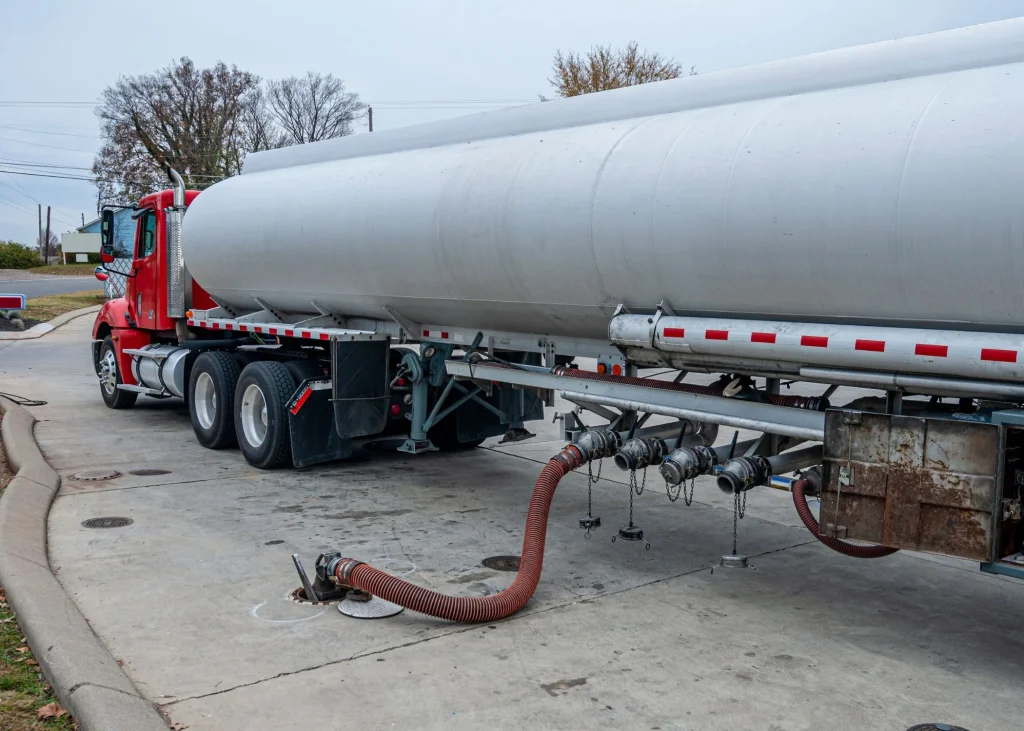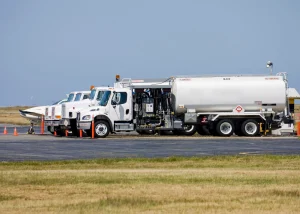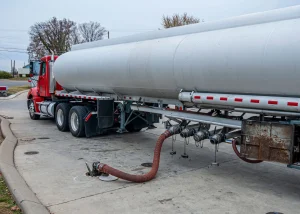If your business uses diesel fuel, it’s important to understand the difference between on-road and off-road diesel to ensure you’re using the correct fuel for your vehicles or equipment. Both types of diesel serve different purposes, and using the wrong one can lead to compliance issues and higher costs.
What is On-Road Diesel?
On-road diesel, also known as clear diesel, is used in vehicles that operate on public roads, such as trucks, buses, and delivery vans. It’s taxed by the federal government because it’s used in transportation that contributes to road wear and tear. On-road diesel is easily recognizable by its clear appearance and is readily available at fuel stations.
What is Off-Road Diesel?
Off-road diesel, also called dyed diesel, is meant for vehicles and equipment that do not operate on public roads. This includes construction machinery, farm equipment, and generators. The fuel is dyed red to indicate it’s tax-exempt and is intended solely for off-road use. Using off-road diesel in on-road vehicles is illegal and can result in heavy fines.
The Key Differences Between On-Road and Off-Road Diesel
- Taxation
The main difference between on-road and off-road diesel is taxation. On-road diesel is taxed, while off-road diesel is not. This is why off-road diesel is often cheaper but can only legally be used in specific off-road equipment. - Color
The difference between on and off-road diesel can also be seen in the fuel’s color. On-road diesel is clear, while off-road diesel is dyed red to signal that it is only for off-road use. - Usage
On-road diesel fuel is used for vehicles that travel on highways and streets, while off-road diesel fuel is designated for machinery and vehicles used on private property, farms, and construction sites.
Why It’s Important to Use the Correct Diesel
Using the wrong fuel can have serious consequences. If you use off-road diesel in a vehicle that operates on public roads, you could face significant fines for tax evasion. Additionally, government agencies routinely check for dyed fuel in on-road vehicles, so it’s important to stick to the correct fuel.
On the other hand, using on-road diesel in off-road equipment is not illegal, but it will cost you more because of the additional taxes applied to on-road diesel fuel. It’s always best to use the appropriate fuel for your specific vehicles and equipment to save money and avoid penalties. Understanding the difference between on-road and off-road diesel helps you choose the right fuel for your business. If you’re unsure which type of diesel is best for your operations, consult with us at Ace Fueling to guide you through the process.





